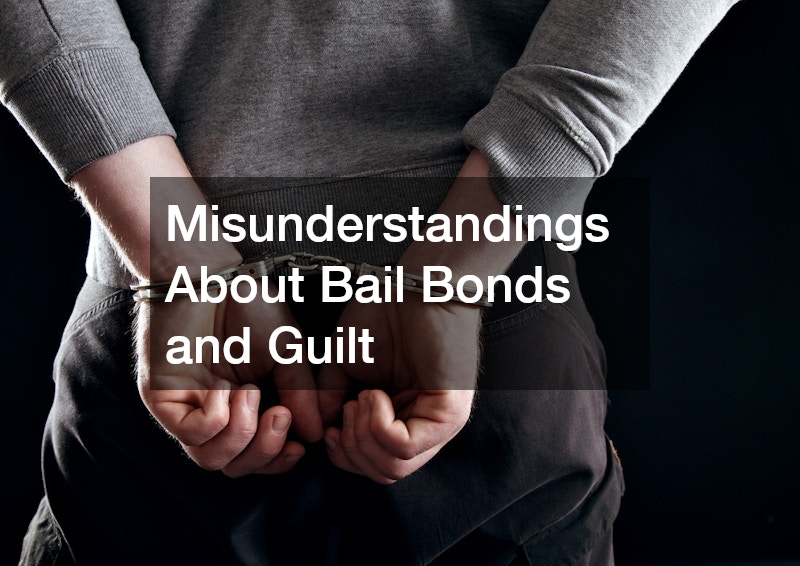Bail bondsman services play a crucial role in the justice system by allowing defendants a temporary release while awaiting trial. However, many misconceptions surround the industry, leading to confusion and misunderstandings. This article will explore and debunk some of the most common myths concerning bail bondsman services, aiming to provide clarity and accurate information to the public.
Do Bail Bondsman Services Offer Immediate Release from Jail?
Understanding the Bail Process Timeline
The bail process is a regulated procedure designed to ensure that a defendant appears in court without holding them in jail unnecessarily. Typically, once bail is set, payment through a bail bondsman can expedite the release, but it does not guarantee instant freedom. Understanding how court schedules, paperwork, and bail conditions work is essential for setting realistic expectations.
Each jail operates on its schedule, affecting how fast a defendant can be processed for release. Furthermore, some facilities may experience delays due to high volumes of cases or limited staffing, which can impact the bail process. It’s crucial for those involved to recognize that even with efficient bail bondsman services, external variables can delay release times.
Multiple factors influence the speed of a defendant’s release, such as the jurisdiction, the time of arrest, and the specifics of the case. For instance, arrests made over weekends or holidays can result in longer processing times due to limited court availability. Bail bondsmen work quickly, but they too are subject to these operational limitations.
Realistic Expectations Vs. Myths
One prevalent myth is that bail bondsmen offer instantaneous jail release, perpetuated by sensationalized portrayals in the media. However, setting realistic expectations is critical; delays are possible, and understanding the factors at play can prevent frustration. While efficiency is prioritized, immediate release often remains an unrealistic expectation within the confines of legal machinery.
The reality is that various procedural and administrative hurdles must be addressed, which can affect the release timeline. By managing these expectations, individuals can better appreciate the key role bail bondsmen play within the justice system. The urgency in bail bond services focuses more on reducing unnecessary incarceration rather than providing unrealistic immediate freedom.
Are Bail Bondsmen Only for Serious Criminals?
Types of Offenses and Eligibility for Bail
A myth often perpetuated is that bail bondsman services are exclusive to serious or violent criminals. In reality, a wide array of offenses, from minor infractions to significant charges, might necessitate bail. Many individuals from various backgrounds utilize these services, making them accessible beyond the confines of severe criminality.
Eligibility for a bail bondsman is determined by numerous factors such as the severity of the offense, past records, and risk of flight. These factors are assessed collectively to ensure that bail aligns with the judicial objectives of justice and public safety. Thus, bail bondsmen serve not just serious offenders but a broad spectrum of individuals requiring interim freedom.
Common Misconceptions About Crime Severity
It is a common misconception linked to the severity of a crime that only those accused of heinous acts need a bail bondsman. This myth overlooks the fact that the judicial system employs bail to ensure fairness and prevent undue pre-trial incarceration. Regardless of the nature of the crime, the system is designed to uphold an individual’s right to bail, given the appropriate conditions.
Individuals accused of relatively minor offenses frequently seek bail bondsman services to maintain their daily responsibilities and welfare while navigating their legal proceedings. This demystifies the belief that bail bondsmen cater exclusively to severe criminals. Instead, they act as an accessible resource for a range of circumstances.
Is Using a Bail Bondsman a Sign of Guilt?
The Presumption of Innocence
One of the foundational principles of any justice system is the presumption of innocence until proven guilty. The utilization of bail bondsman services should not, and does not, negate this principle. Instead, bail allows accused individuals the liberty to prepare for their defense, emphasizing the critical tenet that innocence remains until evidence proves otherwise.
Society often associates the need for a bail bond with an admission of guilt, reflecting a misunderstanding of its practical application. The legal right to bail supports society’s broader commitment to protect rights while preserving the integrity of judicial processes. By dispelling myths associating bail with guilt, these services can be viewed as an integral component of a fair trial framework.
Misunderstandings About Bail Bonds and Guilt
Public misconceptions equating bail bonds with an admission of guilt are pervasive but incorrect. Often misrepresented or dramatized, these notions misconstrue the real intentions behind bail services. The misconception often leads individuals to shy away from pursuing needed bail, fearing public perception over substantive legal rights.
Such flawed perceptions overlook the legal intent behind bail: securing interim liberty while respecting the judicial duty to dispense impartial judgment. Detangling these misconceptions encourages an informed view that bail processes, facilitated through bondsmen, are separate from the notion of guilt or innocence. Transparency and education consequently reinforce these services as vital justice conduits, not guilt indicators.
Misconceptions linking bail to instant release or associating bonds with guilt obscure the practical benefits and procedural compliance these services guarantee. Promoting public awareness and dispelling myths ensures appreciation and informed utilization of bail bondsman services, contributing positively to judicial efficacy and individual legal rights.
.




